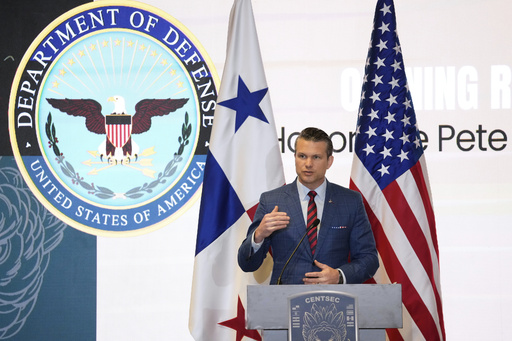On Truth Social, President Donald Trump announced a significant decision to put a 90-day pause on tariffs for many countries while also reducing them to just 10% temporarily. In contrast, China faces a substantial tax increase on imports, now raised to 125%. According to Treasury Secretary Scott Bessent, this tariff pause isn’t a reaction to recent financial market tumult but a strategic move as various countries seek trade negotiations. Shortly after, Trump mentioned the reprieve was due to rising anxiety and apprehension among people.
Interestingly, Trump’s online message urging investors to buy seemed to predict a market upswing. Just hours after his advisory post stating “THIS IS A GREAT TIME TO BUY!!!”, he unveiled the tariff pause. It led to a significant stock market rally, with the S&P 500 gaining a substantial portion of its recently lost value, soaring by 9.5%. This scenario prompted discussions about Trump’s influence over market behavior and concerns about insider information.
U.S. Attorney General Pam Bondi shared a major victory in the war against drug trafficking, revealing the confiscation of illegal drugs, primarily cocaine and marijuana, valued at approximately $510 million. These narcotics were captured from cartel-linked vessels bound for the United States, highlighting the government’s steadfast efforts to dismantle complex trafficking networks contributing to the addiction crisis.
Meanwhile, President Trump has made efforts to revive the coal industry through executive orders intended to protect coal-fired plants and streamline coal mining leases. However, his characterization of coal as “beautiful, clean” coal has faced scrutiny, with experts stating that although cleaner production methods exist today compared to the past, the reality of its environmental impact remains significantly unchanged.
Developments in defense initiatives have surfaced as well, with the U.S. Space Command finalizing options for the ‘Golden Dome’ missile defense system. This endeavor, ordered by Trump, could signify a transformative step with newly deployed space-based weaponry intended to intercept missiles immediately after launch. Despite hints at progression, officials have been elusive about specific details of the project.
The Trump Administration has also presented options for early retirement or buyouts to Interior Department employees as part of a broad strategy to shrink the federal workforce. Employees were given until day’s end to consider such offers, a move aimed at maximizing operational efficiency but exempting critical roles tied to public safety, aviation, cybersecurity, and law enforcement.
In a significant political move, the House has voted to overturn a Biden-era restriction that capped bank overdraft fees at $5, forwarding the legislation to President Trump for approval. The regulation sought to relieve consumers, though Republicans argue it would have led banks to abandon overdraft protections, restricting credit access.
Leadership changes are also notable with the replacement of Kash Patel by Army Secretary Daniel Driscoll as the acting head of the ATF without public announcement or detailed explanations. This unexpected transition introduces new dynamics at the agency responsible for enforcing firearm regulations.
On the international front, the tense tariff showdown between the U.S. and China has escalated as Trump substantially increased tariffs on Chinese imports, targeting a 125% rate while pausing tariffs elsewhere. The intensifying economic rivalry signals danger for global economic stability, raising concerns about potential repercussions if diplomatic solutions remain elusive.
Additionally, USAID has announced widespread layoffs affecting international mission staff, reducing the scope of its humanitarian programs, signaling a shift of priorities under the Trump administration. Those affected by these cuts may transition into roles within the State Department as the agency realigns its focus.
Lastly, amidst various strategic adjustments, Trump’s muddled responses about the tariff pause timing suggest rapid developments. While the president has marked Israel as a leader in confronting Iran’s nuclear pursuits, his rhetoric on subsequent tariff actions remains unpredictable, sowing uncertainty and prompting analysis of his tactics, famously characterized in his “Art of the Deal.”
Trump’s dynamic approach and policy reversals continue to stir mixed reactions domestically and internationally. Senate Democrats critique the chaotic tariff strategy as erratic, while polls indicate voter skepticism on the economic impacts. Nonetheless, Trump’s controversial decisions leave a defining imprint on the broader geopolitical and domestic economic landscape.


